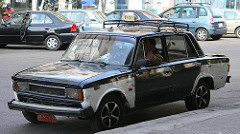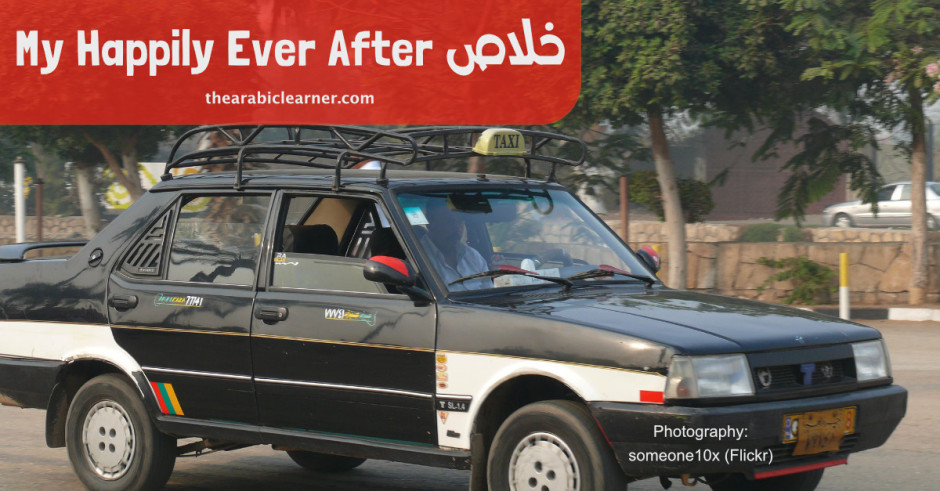[Editor’s note: I am really excited to have Monica beginning to write some posts about her experience of learning Egyptian Arabic. I am going to be having her share some of the process that she lives out in real time over these months ahead. For you, the reader, it will break the monotony of me writing each week… and hopefully will inspire some of you who are launching your Arabic learning, or thinking of launching. – Andrew]
“Khalas خلاص,” I simply replied. And I lived happily ever after.
No one taught me to say khalas خلاص. To this day no one has explained the definition to me. But that hasn’t stopped me from using the word. Especially early on in my time in Cairo, this word came in handy. It was like a gold nugget in my pocket.
When I moved to Cairo in 2015, I knew only a few words of Egyptian Arabic from a trip to the pyramids in 2004. I knew how to say things like table, chair, sunglasses, flip-flops, and thank you. And when I say that I knew how to say these things, what I mean is that I knew how to string together sounds which in my mind sounded similar to actual Arabic. In reality, it’s quite likely I was just doing my fair share of butchering the language.
I don’t remember the first time I heard someone say khalas خلاص. But I was able, by listening, to learn what it means and how to use it. Let’s see if you can figure it out.
A friend of mine was explaining to the woman who cleans her house how she wanted a certain job to be performed. Although the conversation was in Arabic, I could tell by the hand motions and the escalating voices that there was some disagreement on the matter. Finally, with clarity and authority, my friend politely instructed her one last time and said, “Khalas خلاص.” And her housekeeper walked away.

A generous taxi driver one day refused to let my husband pay our taxi fare. My husband made an attempt at being insistent. But the taxi driver insisted, too. The discussion could have continued longer, but the taxi driver pushed the money back into my husband’s hand. Just before he drove away, the driver said, “Khalas خلاص.”
When observing a local woman trying to buy a large quantity of fabric, I watched the storekeeper reach the end of the bolt. When she inquired if there might be more, among other things the storekeeper said, “Khalas خلاص.”
Later I tried my hand at using khalas خلاص, and the results were favorable. More recently, I have learned that in many of these situations there are better ways to express myself in Egyptian Arabic. But in the first weeks of my new Cairo life, how would I have known? I wouldn’t have; so I put to use what I did know.
Alone in a taxi, as the driver approached my home, when I wanted to be dropped off, I said, “Khalas خلاص.” He stopped the car. I pulled out my 2004 Egyptian Arabic memory of thank you, paid him his fare, and walked away. That seemed to work, I thought.
In the grocery store, I asked the man behind the meat counter to slice a quarter kilogram of sandwich meat for me. I thought he understood. Before I knew it, he’d sliced a pile of meat large enough to feed the newly formed Egyptian Parliament. “Khalas خلاص!” I said. And he stopped. I thanked him kindly as he handed me the hefty pack of meat. I had to say something!
The same taxi driver who had not allowed my husband to pay his fare became a good friend of ours during our first months in Cairo. We had to get sneaky in how we paid him for all the trips to and from IKEA, but sometimes we just had to outright give him money. Of course he refused repeatedly. On one occasion, after much back and forth between him and my husband, I jumped in. “Khalas خلاص,” I said with a smile. And that seemed to settle it. He took the money and hugged my husband.
Again, I’ve learned better ways to express myself in some of these situations. In other situations, I still use khalas خلاص simply because it’s what I know. And in the preschool level of my Egyptian Arabic learning, it still continues to be my happily ever after.
The End.


 RSS - Posts
RSS - Posts